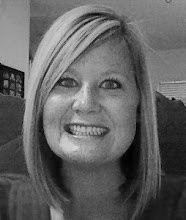 Today we started our "Things That Come in Groups" math unit. This math unit focuses on the development of multiplication and division skills. Today we began our unit by brainstorming "things that come in groups." Some of the ideas that the students came up with were: wheels on a tricycle, fingers on a hand, socks in a pair, eggs in a carton, triplets, and sides on an octagon. The students use this information to make story problems such as "Miss Russell bought 3 cartons of eggs. Each carton has 12 eggs. How many eggs does Miss Russell have?" When asked to solve this problem, many students used an addition equation such as 12+12+12 to solve. The concept of multiplication was then introduced. We think of multiplication as "groups of" things. This problem could be represented with the following multiplication equation 3x12=? In class, I discourage the use of ambiguous terminology such as "times." For this equation we say 3 "groups of" 12. Using the phrase "groups of" gives a more concrete understanding of multiplication. It also allows students to create a mental picture of the problem in order to solve, in case they get stuck. The students caught on to this concept very quickly today and they were excited to hear that they were solving multiplication problems. I love this unit and can't wait to see what awesome ideas the kids will come up with next!
Today we started our "Things That Come in Groups" math unit. This math unit focuses on the development of multiplication and division skills. Today we began our unit by brainstorming "things that come in groups." Some of the ideas that the students came up with were: wheels on a tricycle, fingers on a hand, socks in a pair, eggs in a carton, triplets, and sides on an octagon. The students use this information to make story problems such as "Miss Russell bought 3 cartons of eggs. Each carton has 12 eggs. How many eggs does Miss Russell have?" When asked to solve this problem, many students used an addition equation such as 12+12+12 to solve. The concept of multiplication was then introduced. We think of multiplication as "groups of" things. This problem could be represented with the following multiplication equation 3x12=? In class, I discourage the use of ambiguous terminology such as "times." For this equation we say 3 "groups of" 12. Using the phrase "groups of" gives a more concrete understanding of multiplication. It also allows students to create a mental picture of the problem in order to solve, in case they get stuck. The students caught on to this concept very quickly today and they were excited to hear that they were solving multiplication problems. I love this unit and can't wait to see what awesome ideas the kids will come up with next!-Miss Russell :)






